Pharmacy and Health Inequalities – Mind the Medicines Gap
14/07/2023 9:00 am to 14/07/2023 4:30 pm
Event Details
** This event has now passed **
The theme of the Great North Pharmacy Research Collaborative Conference 2023 was Pharmacy and Health Inequalities – Mind the Medicines Gap
Leading figures and rising stars within the pharmacy sector came together for the Great North Pharmacy Research Collaborative Conference.
The annual event was attended by over 240 pharmacy professionals who heard from a line-up of expert speakers during the day at the Hilton Newcastle Gateshead.
Chaired by Ewan Maule, Director of Medicines and Pharmacy at North East and North Cumbria Integrated Care Board (NENC ICB), the focus of this year’s conference centred around pharmacy and health inequalities.
The conference provides a platform for the pharmacy community to share ideas and learning, and to recognise and celebrate the work of Foundation Pharmacists from across the region.
Delegates joined from a variety of roles and sectors including community pharmacy, general practice, primary care networks, local authority, higher education and the charity sector.
More than 100 posters were exhibited at the event highlighting the scale of pharmacy research that is taking place across the region.
Keynote speakers were:
- Dr James Davies, Director for England at the Royal Pharmaceutical Society
- Professor Edward Kunonga, Director of Transformation and Population Health Management at NECS and Director of Population Health Management at NENC ICB
- Professor Neil Watson, Clinical Director of Pharmacy and Medicines Optimisation Pharmacy Directorate at The Newcastle upon Tyne Hospitals NHS Foundation Trust, and Professor of Practice, Faculty of Medical Sciences at Newcastle University
Ewan Maule, chair of the conference, said: “This year’s Great North Pharmacy Research Collaborative Conference shone the spotlight on the breadth of research that is being undertaken throughout the region across a range of sectors.
“At a time when health inequalities are growing, particularly in the North of England, we wanted the conference to explore some of the work that is being done within the pharmacy field to help address these challenges. We were honoured to be joined by a vast array of speakers who were willing to share their experiences, learnings and ideas, which I have no doubt will have inspired many people sat in the audience.
“I’d also like to thank and congratulate all the Foundation Pharmacists who exhibited posters and presented. It is encouraging to see such passion and engagement in research from the pharmacy leaders of the future.”
Three Foundation Pharmacists were also invited to present their research to the audience. These included Aneesa Ahmed from South Tees Hospitals NHS Foundation Trust, Kanika Girdhar from South Tyneside and Sunderland NHS Foundation Trust, and Sadie Scott from North Tees and Hartlepool NHS Foundation Trust.
The event was closed with a short awards presentation across three categories, which were judged on the day. The winners were:
- Foundation Pharmacist Poster Award: Mohammed Al Badri from Northumbria Healthcare NHS Foundation Trust for ‘Assessing which people in a General Practice have not attended for a Cardiovascular Disease health check using digital searches and Core20PLUS5 criteria’.
- Foundation Pharmacist Presentation Award: Sadie Scott from North Tees and Hartlepool NHS Foundation Trust for ‘An audit to assess the appropriateness of co-amoxiclav prescribing for acute infections’.
- Open Call for Posters Award: Tanya Miah from UKHSA for ‘Evaluating the impact of the CPhO Clinical Fellow Scheme on fostering inclusive future leaders’.
Other speakers on the day included: Amandeep Doll, Royal Pharmaceutical Society/ Nottingham University Hospitals Trust; Dr Sue Picton, Woodlands Park Health Centre; Liz Morgan, Newcastle City Council; Isobel Corby and Mehru-Nisa Shah, Connected Voice Haref; Mike Maguire, NHS England and NHS Improvement – North East and Yorkshire; Omar Sarwar, Farrah Chemists; and representatives from Crisis’ HealthNow project.
Presentations, posters and the recording of the main conference room can be viewed below.
The programme can be viewed here
Watch the event here
Pharmacy and Health Inequalities
Dr James Davies, Director for England, Royal Pharmaceutical Society
Population health management and pharmacy
Prof. Edward Kunonga, Director of Transformation and Population Health Management, NECS
Director of Population Health Management, NHS North East and North Cumbria – Integrated Care Board
Health inequalities in ethnic minority groups, older people and disability groups
Amandeep Doll, Head of Professional Belonging,Royal Pharmaceutical Society, and Medicines Admissions Specialist Pharmacist, Nottingham University Hospitals Trust
Barriers to accessing support around menopause
Dr Sue Picton, GP Partner and Women’s Health Lead, Woodlands Park Health Centre
GP Trainer, Educational Lead for Primary Care PA Development in North Tyneside
Health Protection Outreach Model
Liz Morgan, Interim Director of Public Health, Public Health Department, Newcastle City Council
Working with ethnically marginalised communities to improve health outcomes
Isobel Corby, Haref Training Officer, Connected Voice Haref
Mehru-Nisa Shah, Haref Development Officer (Allies), Connected Voice Haref
Addressing Health Inequalities In Community Pharmacy
Mike Maguire, Local Professional Network Chair (Pharmacy), NHS England and NHS Improvement – North East and Yorkshire
Omar Sarwar, Pharmacist, Farah Chemist, Benwell
Professor Neil Watson, Clinical Director of Pharmacy and Medicines Optimisation, Pharmacy Directorate, The Newcastle upon Tyne Hospitals NHS Foundation Trust
Professor of Practice, Faculty of Medical Sciences, Newcastle University
Foundation Pharmacist Poster Display can be downloaded here
Open Call Poster Display can be viewed here
We would like to extend a big thank you to our judges for this year’s poster display:
Foundation Pharmacist Poster Judges:
Julia Blagburn, Bhavika Girdhar, Jonathan Fenwick and John Stapleton
Open Call Posters Judges:
Kristeen Turner, Kayleigh Davison, Karen Stokoe, Gavin Mankin, Sinead Greener, Ian Grimes
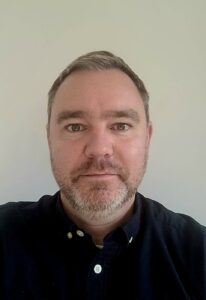 |
Conference Chair
Ewan Maule @EwanMaule
|
| Ewan is the Director of Medicines and Pharmacy for the North East and North Cumbria Integrated Care Board. He has worked in a variety of clinical and managerial roles in both acute and mental health trusts, as well as being the Head of Medicines Optimisation in Sunderland CCG prior to the formation of the ICB. Ewan is a qualified independent prescriber, former vice president of the Guild of Healthcare Pharmacists and is currently an elected member of the Royal Pharmaceutical Society English Pharmacy Board.
|
|
 |
Dr James Davies Director for England Royal Pharmaceutical Society @JD_Pharm |
| James graduated from the University of Bath in pharmacy, undertook his pre-registration training at Guys and St Thomas’ NHS Foundation Trust. He was president of the British Pharmaceutical Students’ Association during this time, championing changes to pharmacy education and training – becoming a BPSA Honorary Life member.
James worked as a hospital pharmacist in North Bristol NHS Trust, before joining the School of Pharmacy, University College London, now UCL School of Pharmacy to pursue pharmacy research. His PhD thesis, supervised by Prof David Taylor and Prof Nick Barber, focussed on the future role of community pharmacy, and how future business and professional models of community pharmacy practice are likely to be structured. He continued in academia with post-doctoral research as part of the national team that evaluated the New Medicines Service in community pharmacy. With a wide variety of interests, James’ published work covers areas such as cardiovascular risk testing in pharmacies, the role of tele-pharmacy in delivering patient care, effects of automation and electronic transfer of prescriptions on safety of medicines, and student views on future pharmacy practice. James left academia for Health Policy and was the Practice and Policy Manager for the Company Chemists’ Association (CCA) – the trade body for the large pharmacy chains – representing over half the community pharmacy market. Prior to his current role as the Director for England at the Royal Pharmaceutical Society, James was Chief Operating Officer for a health technology start-up, supporting the expansion and development of the company across Europe.
|
|
 |
Amandeep Doll Head of Professional Belonging Royal Pharmaceutical Societyand Medicines Admissions Specialist Pharmacist Nottingham University Hospitals Trust https://www.linkedin.com/in/amandeep-doll-288baa24/?originalSubdomain=uk |
| As the Head of Professional Belonging Aman’s role is to ensure they are creating a culture of belonging across the profession where people feel like they can bring their whole and authentic selves to work. Since the launch of the RPS Inclusion and Diversity strategy in June 2020 they have been working with the profession to highlight the key barriers and challenges to working in the profession. Work around this has included creating an inclusive intersectional network – Action in Belonging, Culture and Diversity (ABCD) which meets every 2 months to discuss a range of topics, producing educational resources as well as running dedicated campaigns on different protected characteristics. Aman is one of two vice chairs for Equality, Diversity and Inclusion (EDI) for the GHP NOPC newly appointed to role. Her role within GHP NOPC is to promote EDI in all places and spaces, advocate for equity bringing the learning from my role as the Head of Professional Belonging and face to face practice in making EDI accessible and achievable for all. Whilst advocating and ensuring everyone in the profession is treating fairly and equitably. Aman also work as a medical admissions specialist pharmacist at Queens Medical Centre to maintain her clinical practice.
|
|
 |
Dr Sue Picton GP Partner and Women’s Health Lead, Woodlands Park Health Centre GP Trainer Educational Lead for Primary Care PA Development in North Tyneside@picton_sue |
| After graduation from Manchester University Sue initially trained in hospital medicine before returning to the North-East and completing her GP training in Northumberland. She has a special interest in the health of midlife women as they transition through menopause and beyond and is increasingly involved as an educationalist in training a wide range of Primary Care based healthcare professionals, including clinical pharmacists on issues around menopause, post reproductive health and HRT.
|
|
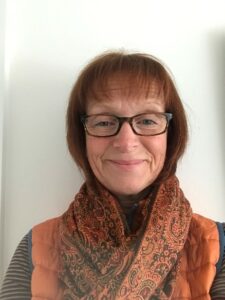 |
Liz Morgan Interim Director of Public Health Public Health Department Newcastle City Councilhttps://www.linkedin.com/in/liz-morgan-327b9227/ |
| Liz is a pharmacist by background, having trained at Chelsea School of Pharmacy and Charing Cross Hospital. Liz joined the Army and was commissioned as a pharmacist in 1991. After a career spanning 20 plus years and having retrained as a public health consultant in the Army in 2012, Liz left the Armed Forces and started as a consultant in public health in Lincolnshire County Council. Moving up to Northumberland County Council in 2016, Liz became Director of Public Health in 2017 and retired earlier this year from the role of Executive Director of Public Health, Housing and Community Services in 2021. Retirement did not last long and Liz is currently interim Director of Public Health in Newcastle City Council.
|
|
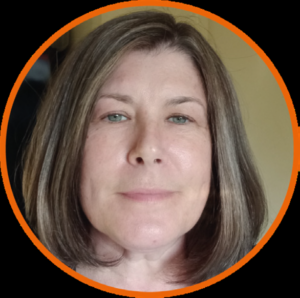 |
Isobel Corby Haref Training Officer Connected Voice Haref@ConnectedVoice_https://www.linkedin.com/company/connected-voice/ |
| Isobel is an experienced facilitator who has delivered training on complex subjects like domestic abuse, understanding trauma and self-care and boundaries. Isobel has worked in VSCE and health partnerships in Newcastle for over a decade, delivering services to diverse communities and is passionate about social justice and achieving health equity for minoritised groups. Isobel refreshes the training annually to ensure that it stays relevant and includes the voices of the Haref Network, who’s experiences inform this unique training.
|
|
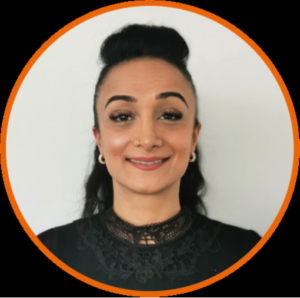 |
Mehru-Nisa Shah Haref Development Officer (Allies) Connected Voice Haref@ConnectedVoice_https://www.linkedin.com/company/connected-voice/ |
| Mehru-Nisa has over two decades of experience in community work with ethnically marginalised communities in our region, ranging from Newcastle’s multi faith Peace & Unity initiative to working with various foodbanks, in particular Newcastle’s West End Foodbank. Mehru-Nisa has always been passionate about working with refugees and asylum seekers, volunteering in France, Greece and Pakistan, and is dedicated to working with charities such as Refugee Biriyani and Bananas and Toon Aid. Mehru-Nisa is committed to driving the improvement of health and wellbeing services for ethnically marginalised communities.
|
|
 |
Mike Maguire Local Professional Network Chair (Pharmacy) NHS England and NHS Improvement – North East and Yorkshire@mikemaguire66 |
| As Managing Director/Community Pharmacist at Marton Pharmacy in Middlesbrough, Mike transformed the health and wellbeing of his community. In 2009, Mike won the UK Community Pharmacist of the Year Award and has since won national awards for Excellence in Training, Innovation and Excellence in Business, and an award from Mayor Ray Mallon for Services to the Community. Mike is currently a member of the English Pharmacy Board of the Royal Pharmaceutical Society. As part of his role as Local Professional Network Chair for NHS England and Improvement, Mike was instrumental in creating and launching the Award-Winning NHS111 Community Pharmacy Referral Service, which has evolved into the national NHS Community Pharmacist Consultation Service (CPCS). Outside of healthcare, Mike has advised, trained and supported a variety of organisations, within education, the hospitality sector and within I.T., and has mentored individuals such as an MP. Mike has worked regionally, nationally and internationally, reaching out as far as the Middle East, the U.S. and New Zealand.
|
|
 |
Omar Sarwar Pharmacist Farrah Chemists, Benwellhttps://www.linkedin.com/in/mohammed-omar-sarwar-a0032a5b/ |
| Omar has worked as the Pharmacy Manager for Farah Chemists in Benwell for the last 7 years but has worked in community as a Pharmacist for the last 14 years. During this time he has also completed his postgraduate diploma in clinical pharmacy and has also achieved his independent prescribing qualification. Whilst working in community Omar has also had the opportunity to work in primary care as a medicines optimisation Pharmacist and has a keen interest in structured medication reviews for polypharmacy patients particularly those in care homes.
Omar enjoys engaging with locally commissioned services and has helped to promote them as the Newcastle inner west PCN lead over the last few years. Since qualifying in 2009 Omar has always had a keen interest in addressing the health inequalities within the community. He links in with a variety of other organisations and sub groups within his community to try and deliver the best possible care for every single patient. Omar’s ‘formulated’ approach has gained him the recognition, trust and respect from the people of Benwell. |
|
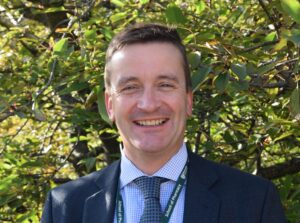 |
Professor Neil Watson Clinical Director of Pharmacy and Medicines Optimisation Pharmacy Directorate Professor of Practice, Faculty of Medical Sciences Newcastle University@neilwwatson66 https://www.linkedin.com/in/neil-watson-5a0944234/ |
| Professor Watson is the Clinical Director of Pharmacy and Medicines Optimisation at The Newcastle upon Tyne Hospitals NHS Foundation Trust, leading a team of 400 staff working across two hospital sites (The Royal Victoria Infirmary and The Freeman Hospital) and in integrated teams supporting primary care, a post which he has held since April 2007. Professor Watson’s primary areas of interest are Advanced Therapies, Integrated Care, Population Health, and Clinical Informatics, supporting data driven care.
As Co-Director of one of three ATTCs, Professor Watson is supporting the creation of optimal adoption pathways for ATMPs into the NHS. More recently, Professor Watson led the Covid Vaccination Programme for the North east and North Cumbria, and faced the challenges of Health and Healthcare inequality on a daily basis. |
|
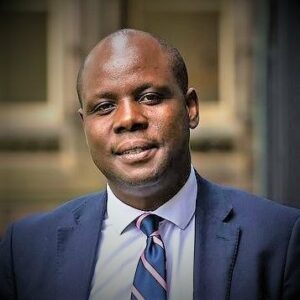 |
Prof. Edward Kunonga Director of Transformation and Population Health Management NECSDirector of Population Health Management NHS North East and North Cumbria – Integrated Care Board |
| Edward is a passionate public health professional with knowledge, experience and expertise in population health management, improving population health, tackling health inequalities and healthcare quality at a local, regional and national. He has extensive public health experience which includes working as a Director of Public health for two unitary local authorities in the UK, a consultant in public health/epidemiologist. PHM expert for the northeast region of England and as a freelance public health consultant. He is currently working as Director for PHM for NECS as well as a consultant in Public Health for an acute and a mental health trust in the northeast of England. He is involved in research, teaching and learning with a number of universities. | |
Session One
Stomping on Inequalities: an opportunity for Pharmacy to bridge the medicines gap for people with a learning disability and/or autism
This breakout session will shine a spotlight on health inequalities for people with a learning disability and/or autism. It is well established that people within this demographic have a shorter life expectancy than the rest of the population, with over half of these early deaths thought to be preventable (Leder 2021). For this reason it is important to consider the opportunities for pharmacy teams to have a beneficial impact on the existing disparity.
This interactive session will focus on networking and a collective approach to challenging inequalities in our Primary Care Network populations.
Steve Storey
Lead Interface Pharmacist, Primary Care Physical Health Hub
Cumbria, Northumberland, Tyne and Wear NHS Foundation Trust
Lucy Wilson
Lead Pharmacist, Normanby Medical Centre
Working with Community Pharmacy – an untapped opportunity to support patients and mitigate against health inequality
In this session community pharmacy colleagues will discuss how community pharmacy is supporting patients with access to a number of services and how colleagues from across primary and secondary care can engage better to improve safer care for patients and the public.
Mark Burdon
Community Pharmacist, Burdon Pharmacies
Dan Thirlwell
Superintendent Pharmacist, Mills Pharmacy
Asking the unanswered questions – opportunities for pharmacy research to address health inequalities
Get involved in researching health inequalities: A session designed for any member of the pharmacy team, with the aim of sparking curiosity and supporting you to get started with pharmacy research.
Dr Andrew Sturrock
Associate Professor of Public Health and Primary Care, Department of Nursing, Midwifery and Health, Faculty of Health and Life Sciences, Northumbria University
Dr Anna Robinson-Barella
Researcher in Medicines Inequalities and Lecturer in Clinical Pharmacy at the School of Pharmacy, Newcastle University
Session Two
Why we need a pain clinical network?
The session will consider:
- The impact of persistent pain
- Consideration of the way in which we have traditionally managed people suffering with pain
- The types of data which are available to allow us to assess need and the subsequent impact of our interventions.
- The need to consider a personalised approach.
- The benefits of a multidisciplinary approach and the benefits of making every contact count.
- The potential benefits of multi-agency strategy across our region.
Dr Graham Syers, GP, Alnwick Medical Group
How data can help to close the medicines gap
This session will highlight some of the data sources that are available and how they can be utilised to reduce health inequalities, by focussing medicines optimisation strategies accordingly. The session will demonstrate the importance of using the correct metrics, to ensure we reach the most affected populations when delivering a medicines intervention.
Using worked examples we will demonstrate how different metrics can influence the activity of medicines optimisation teams, and why it is important that we question the data sets that are presented to us for use within our populations.
We would welcome discussion in this session around opioids, and the problem with excluding compound opioid analgesics, antimicrobial stewardship and the use of items/STAR-PU vs DDDs/patient list size, insulin pumps and weighting by the number of T1DM in IMD quintile.
Dr Helena Nettleton
Principal Pharmacist, RDTC
Monica Mason
Head of Prescribing Support, RDTC
Language barriers and their impact on patient care; how we can do better
This session will showcase work undertaken on language barriers and impact on patients, opportunities to support patients and how pharmacy teams can develop and test services.
Dr Anna Robinson-Barella
Researcher in Medicines Inequalities and Lecturer in Clinical Pharmacy at the School of Pharmacy, Newcastle University
Jay Patel
Regional Facilitator, Early Career Pharmacist Practice
Pharmacy Project Manager, Liverpool University Hospitals
North East and North Cumbria Integrated Care Board
Academic Health Science Network North East and North Cumbria
CPPE – Centre for Pharmacy Postgraduate Education
Cumbria, Northumberland, Tyne and Wear NHS Foundation Trust
Gateshead Health NHS Foundation Trust
Regional Drug and Therapeutics Centre
South Tees Hospitals NHS Foundation Trust – Pharmacy
County Durham and Darlington NHS Foundation Trust
NHS North East and Yorkshire Genomic Medicine Service Alliance
Join the conversation
Please follow us on Twitter @GtNorthPharmRes #GNPRC2023 to join the conversation.
- The conference will be paperless (as much as possible) without compromising elements of the event (ie poster display)
- Delegate badges have all been used previously and will be collected at the end of the conference. Inserts will be recycled
- We have requested that all posters be printed on uncoated/recycled paper. All posters left at the venue can then be recycled.
- No delegate packs will be available, all information is on the event resource page on our website
- The conference lunch will be meat free
- We have asked all exhibitors to be mindful when preparing materials for their stands
- Post-event the Hilton Hotel will pull together all our event info and work out the Carbon Footprint for the event and then offset that value by making a comparable donation to South Pole Project.
- We have requested mugs where possible for refreshments and any snacks be free of packaging.
